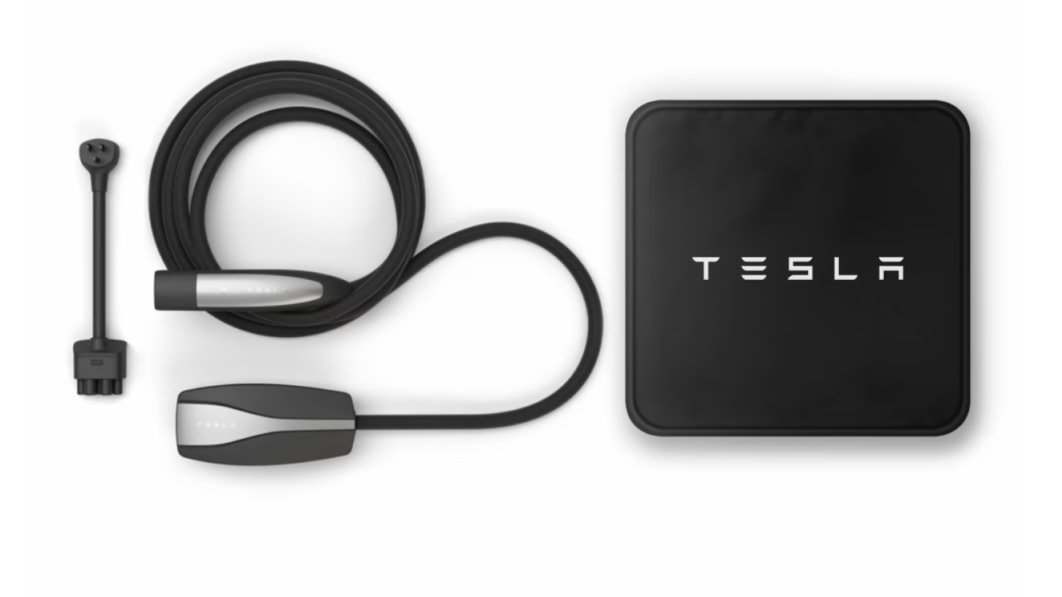Tesla is no longer delivering new cars with charging cables

Tesla has announced that, effective immediately, its new cars will no longer be delivered with a mobile charging cable. Anyone who wants one will have to purchase it separately.
According to Electrek, Tesla CEO and co-founder Elon Musk explained that charging cables are no longer included because they’re rarely used. “Usage statistics were super low, so [it] seemed wasteful,” he wrote. Up until recently, Tesla delivered every new car with a charging cable and a NEMA 5-15 adapter that allowed owners to plug their car into a regular household outlet for slow, overnight charging.
Motorists who still see a use case for a mobile connector can buy one directly from Tesla, either when they order their car or separately after they’ve taken delivery. Pricing on Tesla’s website shows $275 for what the company calls a “Gen 2 Mobile Connector Bundle” that allows charging at 120 volts, and $400 for a cord that allows for Level 2 charging at 240 volts, though Musk wrote on Twitter that Tesla will drop the price of the mobile connector to $200. There’s a catch: Both are currently listed as “out of stock” on the company’s website, which signals that demand might be higher than Tesla initially assumed.
The move doesn’t mean that future Tesla owners will not be able to charge their car unless they buy additional hardware. No cable is required to plug a car into a public charging station, like one of Tesla’s Supercharger stations, or into a wall-mounted Level 2 home charger. But having a charging cable aboard allows an EV owner to pick up a few miles of range while parked anywhere else.
Most electric cars — maybe all — currently available new come with a charging cable, but the practice of removing features from a car and charging extra for them isn’t new. Spare tires and ashtrays, two things that were standard for decades, are often optional, if they’re available at all. About a third of new cars (regardless of powertrain type) do not come standard with a spare tire, according to a Consumer Reports study.
As with a spare tire, driving around without an EV charging cord would seem to be no problem — until the moment it becomes one.



